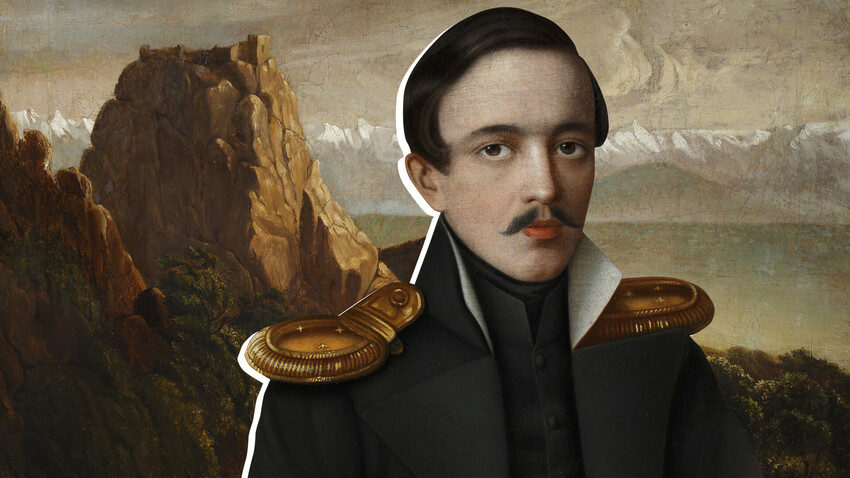
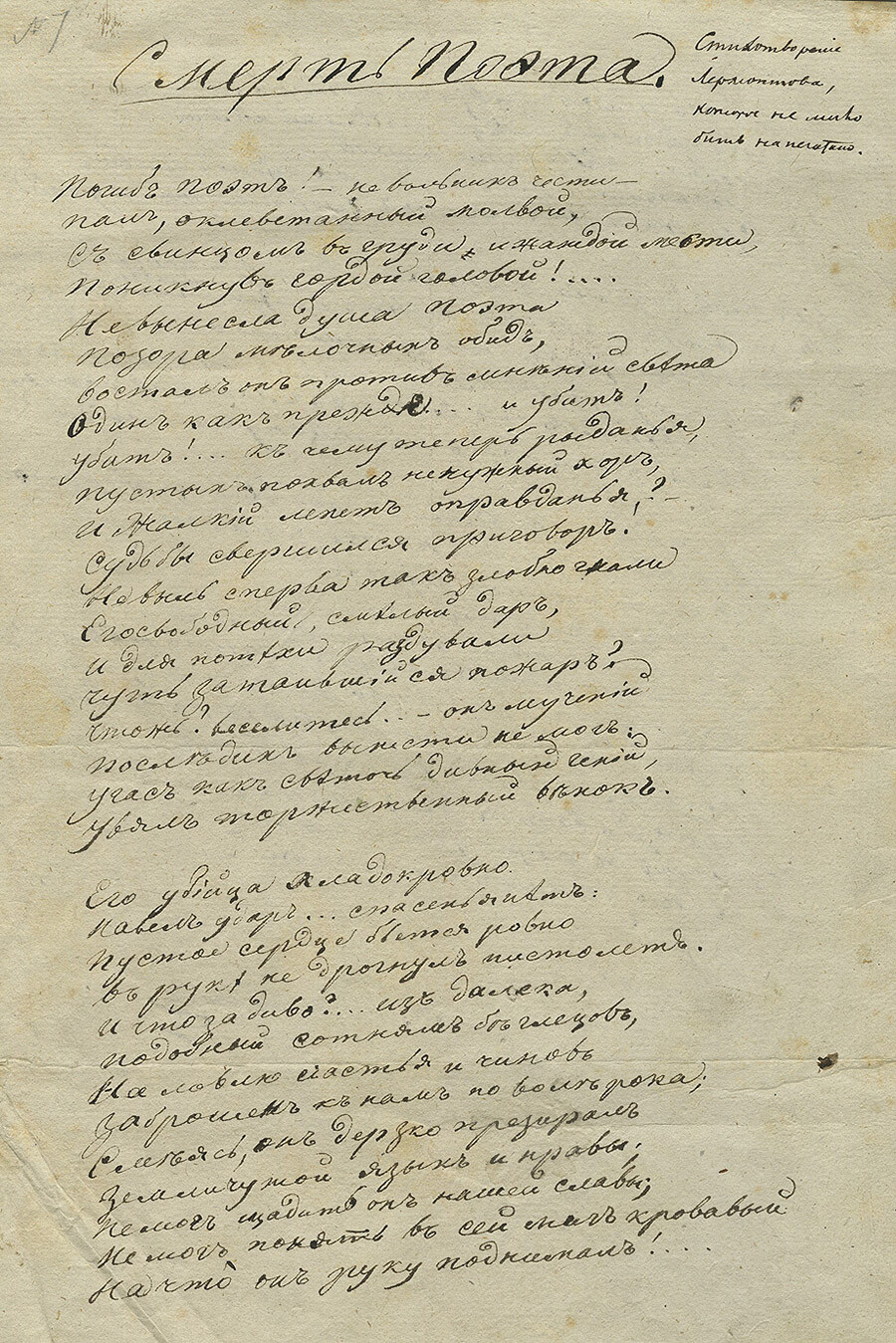
Lermontov's handwriting of ‘The Death of the Poet’
Russian State Archive of Literature and ArtFrom the very childhood, Mikhail Lermontov was good at drawing, playing musical instruments and writing poems. The ability to rhyme was generally a part of a nobility's upbringing in the 19th century. But, it turned out that Lermontov really had talent.
His poems became widely known after the death of Alexander Pushkin, considered the main Russian poet of all time. His duel and subsequent death shocked Lermontov, who was his devoted admirer. And he responded with a sharp poem titled ‘The Death of the Poet’, where he blamed secular society and its rumors for what had happened. And the poem made a lot of noise.
In general, Pushkin's poems, especially his early romanticism, had a huge influence on Lermontov. And, in high society, people gossiped that Lermontov could have replaced Pushkin, had he not died so young.
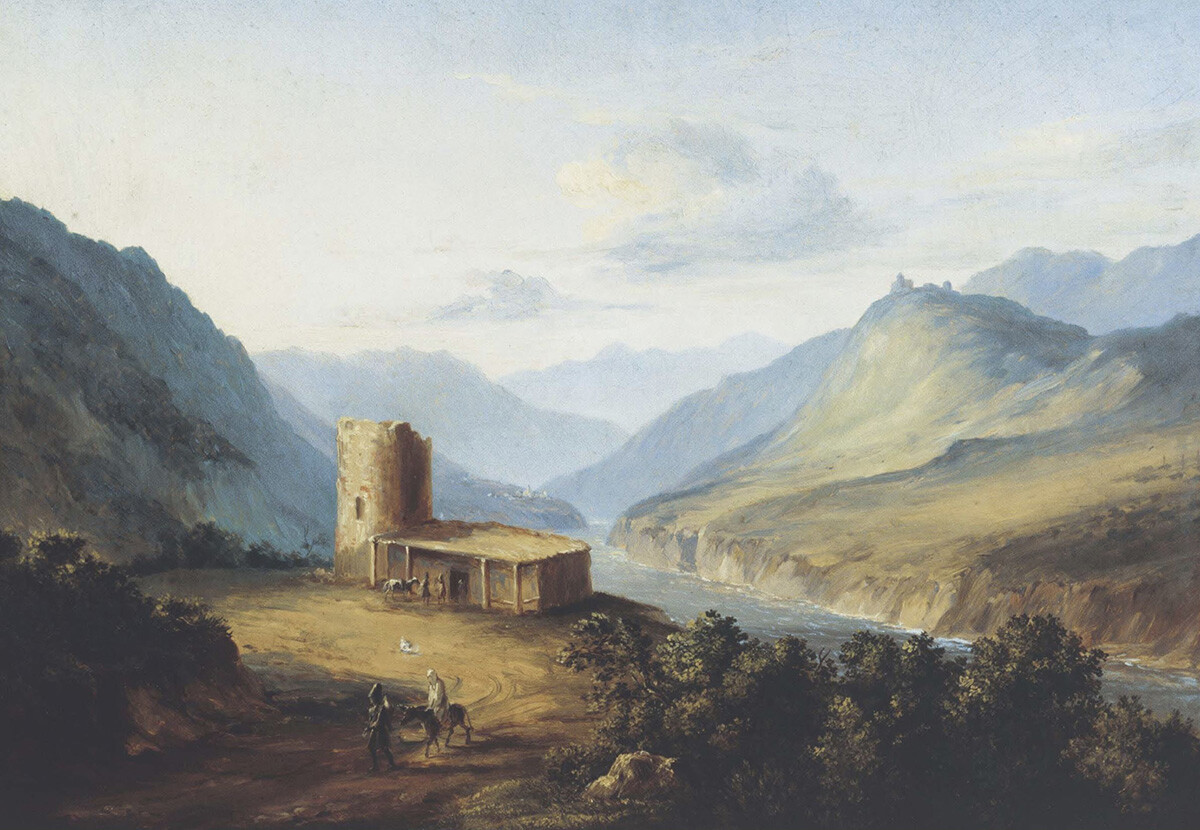
Mikhail Lermontov. The Military Georgian Road near Mtsheta (Landscape with a Saklia - dwelling of Caucasian mountaineers), 1837
Soviet Russia publishing house, 1987For his poem ‘The Death of the Poet’, Lermontov was sent into exile to the Caucasus, where he was assigned to a dragoon regiment. More than once in the line of duty (and Lermontov was a professional military officer and a guardsman), he would visit these places. And they had the strongest influence on his work.
The mountains of the Caucasus inspired his poem ‘The Novice’ and many other verses. In addition, a significant part of the action of the novel ‘Hero of Our Time’ takes place there. And Lermontov actually died there, too.
There is a story that in Georgia the poet was wooing a local beauty and she asked him for a favor: to take out of the house… the corpse of her previous suitor! Whether this is true or not is unknown. The only evidence is Lermontov's own words, as he told this story in letters to friends. However, it is known that he was a great joker.
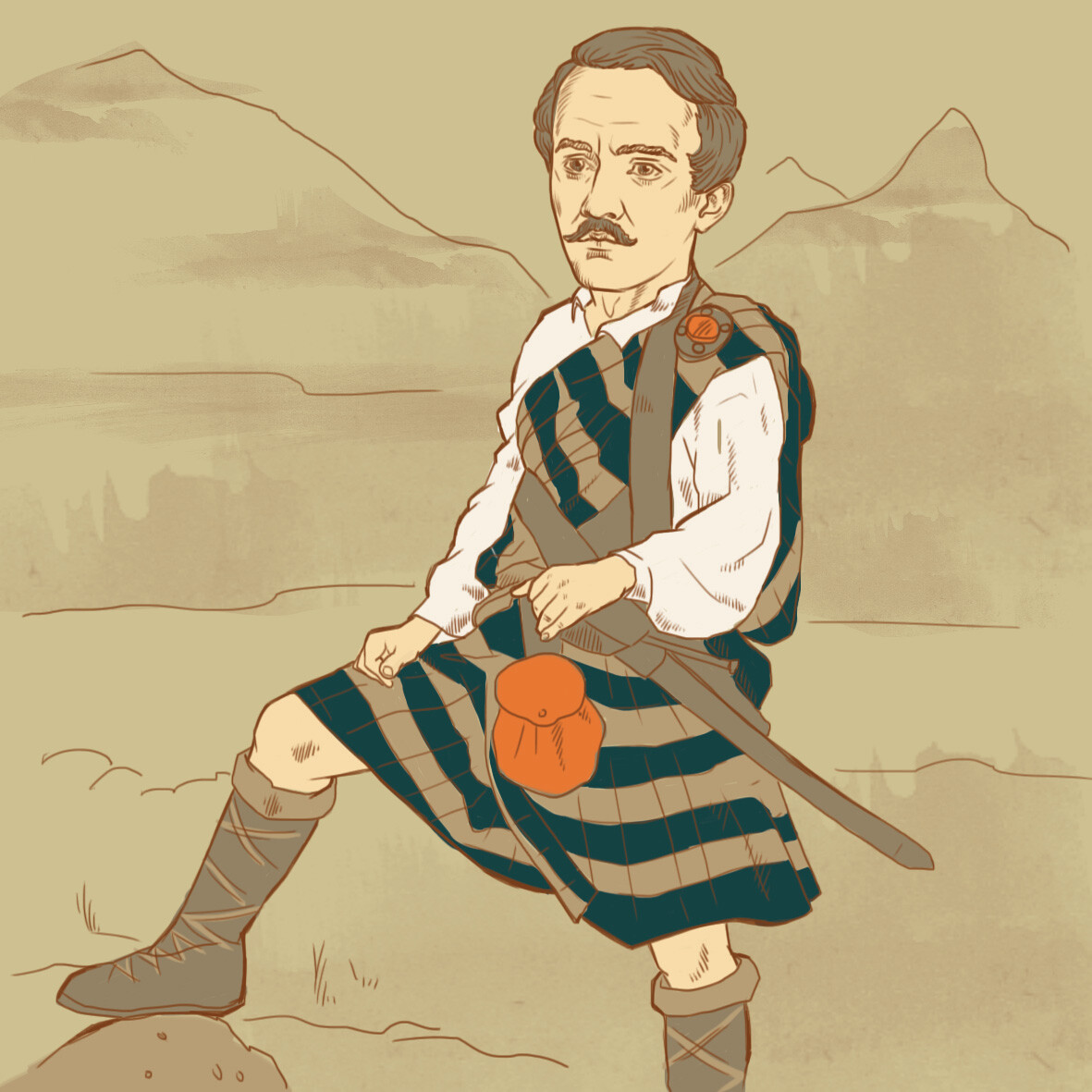
Russian poet with the Scottish roots
Natalia MikhaylenkoThe Lermontov family goes back to a Scottish bard named Thomas the Rhymer, also known by the surname Learmonth. In the early 17th century, a certain lieutenant George Learmont, who took part in the Polish intervention in Russia, fell into Russian captivity. Historians believe that he was an adventure-seeker. Therefore, captivity for him became a great chance for a new life, as he entered the service of Tsar Mikhail Fedorovich.
The poet hints about his Scottish roots in the poem ‘Yearning’ (check out the full English translation by Thomas Beavitt here), where he writes the following lines:
“I would fly over the sword and shield,
Brushing the dust of ages as I wheeled;
Grazing the mute Scottish harp strings.”
He also mentions that all his ancestors were military men:
“The last scion of a race that routed foes
Desiccating here amongst th’ alien snows.”
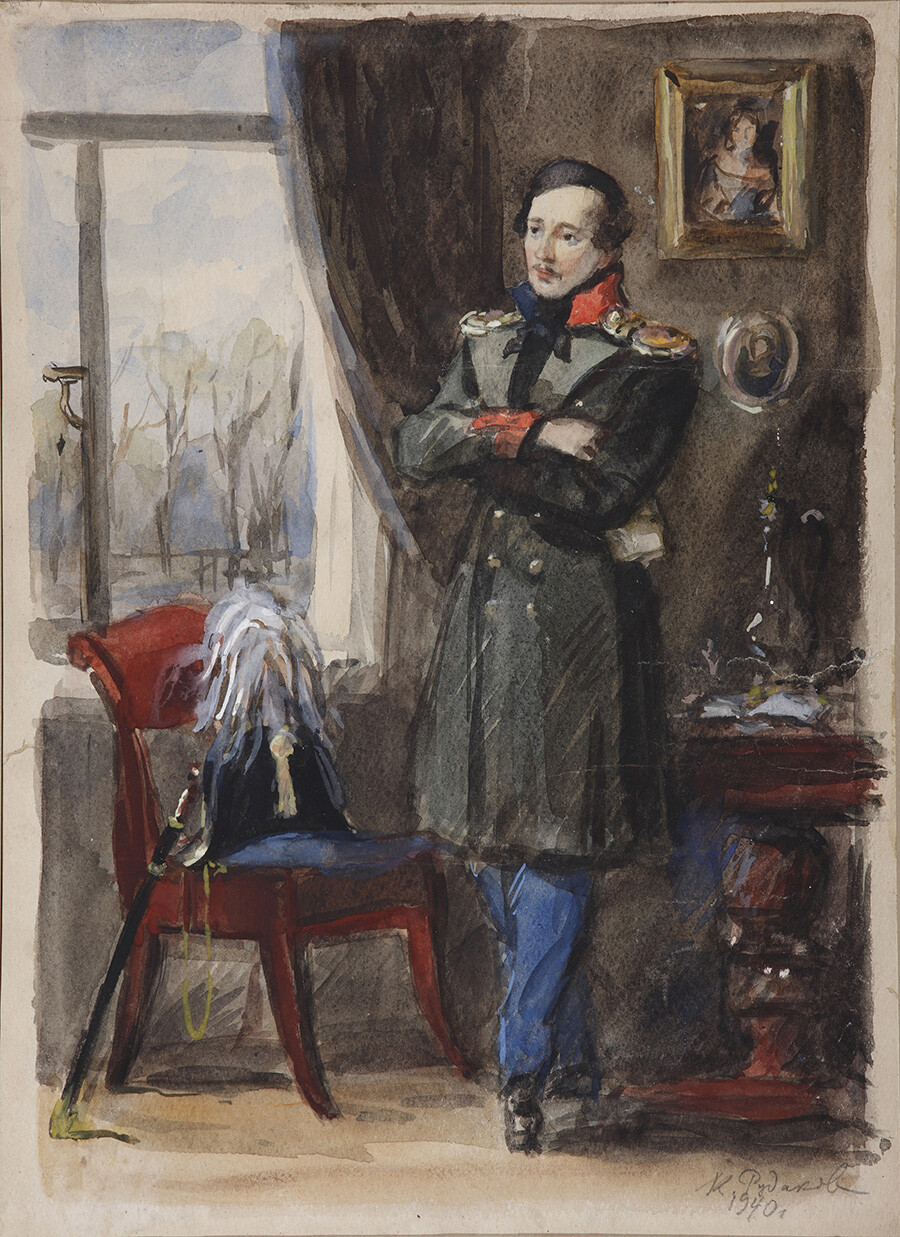
Konstantin Rudakov. Portrait of Mikhail Lermontov, 1940
Fine Art Images/Heritage Images/Getty ImagesLermontov's ancestor, Thomas the Rhymer, was considered a prophet in Scotland. The Russian poet was also the subject of many tales and the most incredible stories.
The most famous one is connected with the magic of numbers around the dates he was alive (1814-1841): exactly one hundred years after his birth, World War I began, and, one hundred years after his death, the USSR entered World War II.
The poet's words have repeatedly been considered prophetic and true at all times. For example – “Russia has no past: it is all in the present and future.”
Many of his quotes can be heard in any era of Russian history. For example, as the words from this caustic poem (translated by Dmitri Smirnov):
“Farewell, farewell, unwashed Russia,
The land of slaves, the land of lords,
And you, blue uniforms of gendarmes,
And you, obedient to them folks.”
Or a quote from Lermontov’s most famous epic poem called ‘Borodino’, written about the famous 1812 battle against Napoleon.
“– Yea, were there men when I was young,
Whose songs your tribe is not to 've sung:
They'd fight, – you 're none as good!”
Check out the full translation by Peter Solovioff here.
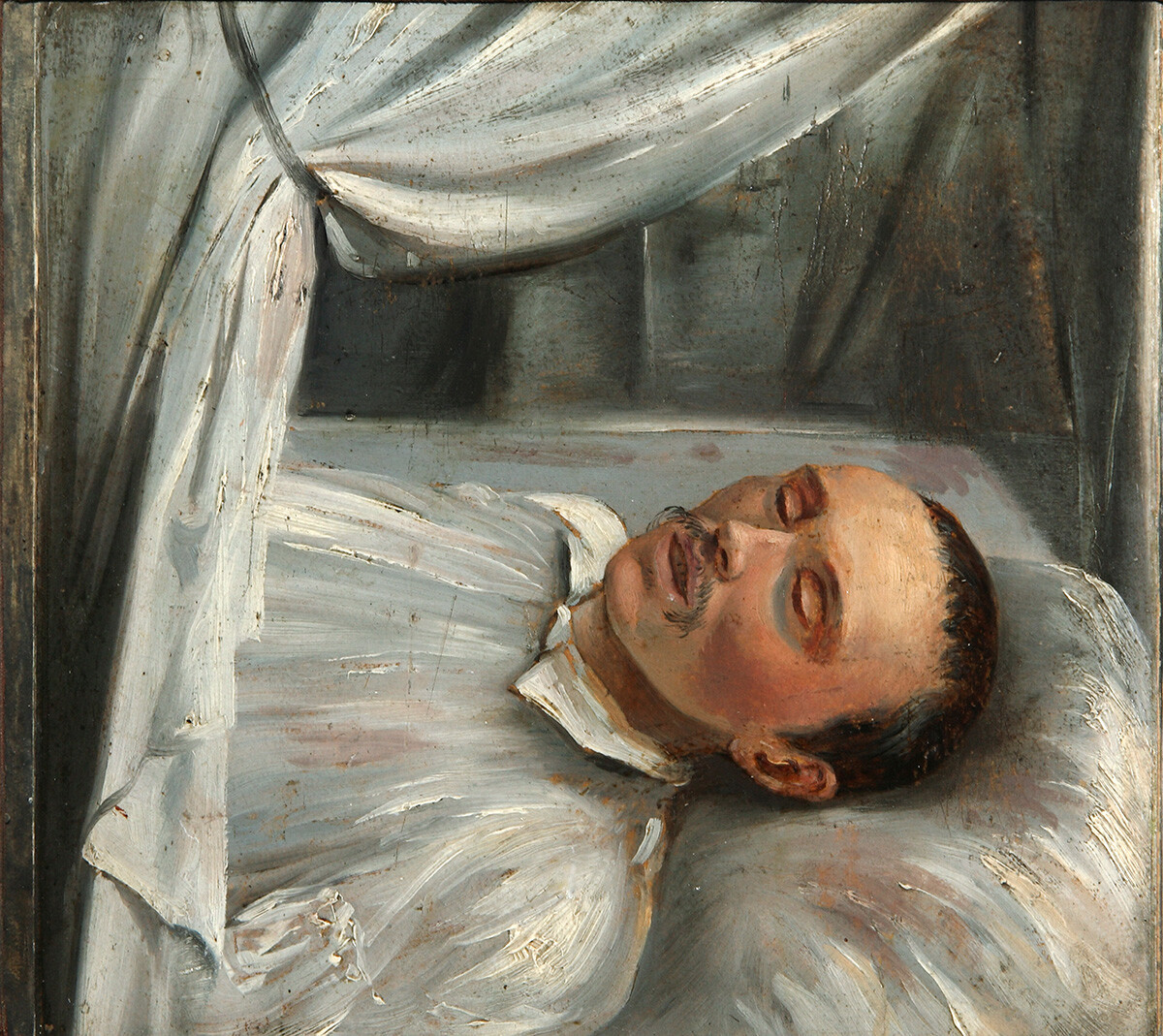
Mikhail Lermontov on the deathbed, 1841
Fine Art Images/Heritage Images/Getty ImagesMuch in Lermontov's biography echoes the life path of Pushkin. Exile, romantic poems, a duel… Paradoxically, Nikolai Martynov, the rival of Lermontov's last duel, was in the same regiment with Dantes, who mortally wounded Pushkin, for some time.
Contemporaries recalled that Lermontov was extremely arrogant and a bully. And he liked to say evil jokes about people, even in secular society. “Since his arrival in Pyatigorsk, Lermontov has not missed a single occasion where he could tell me something unpleasant.
“Sharpness, barbs, taunts at my expense, in a word, everything that can only annoy a man, not touching his honor,” Martynov recalled.
In fact, Lermontov forced his opponent to call him to a duel and hinted at it.
According to legend, the poet himself shot in the air and the insulted Martynov responded with a bullet to Lermontov’s chest. The second greatest Russian poet died three months shy of turning 27 years old.
Dear readers,
Our website and social media accounts are under threat of being restricted or banned, due to the current circumstances. So, to keep up with our latest content, simply do the following:
If using any of Russia Beyond's content, partly or in full, always provide an active hyperlink to the original material.
Subscribe
to our newsletter!
Get the week's best stories straight to your inbox